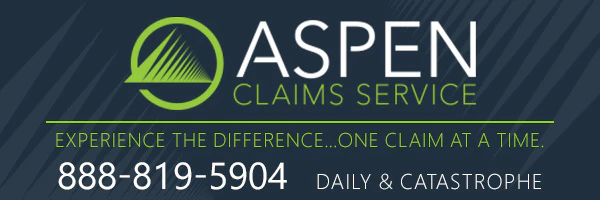
Upholding Integrity Under Pressure
Thursday, September 4th, 2025 Claims Pages Staff Ethics in Claims Adjusting: Building Trust in a Competitive IndustryIn claims adjusting, time is rarely on your side. The clock starts ticking the moment a loss is reported, and adjusters are expected to process complex files with accuracy, fairness, and speed. Add in organizational metrics like loss ratios, cycle times, and customer satisfaction scores, and it's easy to see how ethical pressure can build quickly—even for the most seasoned professionals.
When volume spikes or a particularly high-profile claim lands on your desk, the pressure doesn’t just come from policyholders or managers. It comes from inside, too. Adjusters pride themselves on being efficient, decisive, and solution-oriented. But when the demands exceed what’s reasonable, it can create a quiet tug-of-war between expedience and ethics. And that’s when mistakes—or worse, lapses in judgment—can happen.
Recognizing this pressure is the first step to managing it. Ethical stressors often disguise themselves as everyday decisions: Should I push this claim through without the final document to stay on deadline? Should I overlook this discrepancy because it’s a small payout? Should I interpret this policy provision in our favor to hit monthly targets? These aren't always framed as ethical choices—but they are, and the cumulative effect can be corrosive.
So how do you uphold integrity when expectations feel impossible?
1. Create a personal ethical checklist. When time is short, having a go-to mental checklist helps ensure you're not skipping key considerations. Ask yourself: Have I verified the facts? Have I communicated all findings to the policyholder? Is my decision fair and supported by documentation? Would I feel confident if this file were audited tomorrow?
2. Use the pause as a tool. When ethical stress creeps in, taking a few moments to step back—even mentally—can shift your perspective. A five-minute breather, a quick conversation with a colleague, or even rewriting your rationale can help clarify whether you’re being thorough or just rushing.
3. Document your process. Even if you’re moving fast, leave a trail. Document your decision points and the rationale behind them. If a claim is borderline, note the discussions or consultations that took place. This not only protects you, but reinforces transparency and accountability across your team.
4. Know when to escalate. It’s not a weakness to ask for support. When ethical gray zones intersect with organizational pressure, supervisors or compliance officers can help share the burden. Their involvement also signals that the organization supports integrity—even when it's inconvenient.
5. Set boundaries when possible. If you’re consistently facing ethical stress, raise the issue. Whether it’s unrealistic caseloads, unclear metrics, or competing messages from leadership, ethical pressure is a signal that something in the system needs to be adjusted. Raising those concerns professionally is a form of leadership—not complaint.
Maintaining integrity isn’t about being perfect under pressure—it’s about being aware of the pressure, acknowledging the risks it introduces, and using tools and habits to counteract it. At its core, ethical claims handling is about trust. And trust, once compromised, is hard to restore.
The most respected adjusters in the field aren’t just the fastest or most knowledgeable. They’re the ones who can be counted on to do the right thing, even when it’s hard. Especially when it’s hard.
Ethical behavior in claims adjusting is more than a regulatory necessity—it's the key to building lasting trust with policyholders, colleagues, and partners. In this series, "Ethics in Claims Adjusting: Building Trust in a Competitive Industry," we examine the frameworks, strategies, and mindset that help adjusters uphold integrity even under pressure.
Explore the full editorial collection at Ethics in Claims Adjusting: Building Trust in a Competitive Industry and discover how leading with ethics can elevate both performance and professional reputation.

